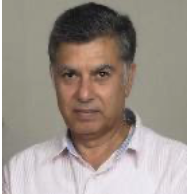Badri Khatwe of Bastipur VDC, Siraha, borrowed Rs 8,000 at a whopping interest rate of 36 percent to buy the Unity scheme. But the money wasn’t quite enough. He then sold his TV set to meet the deficit. “When Unity agents convinced me that a onetime investment of Rs 15,000 would buy me medical treatment for a lifetime and a hefty return within a few months, I decided to sell my TV.”
Hundreds and thousands of poor Nepalis across the country have bought the fraudulent schemes in the hope that Unity would help them escape a life of poverty, deprivation and humiliation. That was the dream Unity’s vicious network sold to these unsuspecting souls.
How could we not stop Unity long before it managed to trap so many? It, after all, wasn’t a clandestine organization—it operated openly; had its head office at Jawalakhel in the capital; and thousands of its agents were on the ground selling the bogus schemes and the false promises.
Unity operated and thrived in our collective failure. It’s a failure of the state, especially the Home Ministry and the police, and the regulatory bodies— particularly Nepal Rastra Bank and the Insurance Board. Even the Finance Ministry could have coordinated action against Unity long ago as it eventually did last week.
But it was no less a failure of media. Let’s accept it – we flunked big time on this one. How could we not see this financial monster growing bigger and bigger, preying on gullible Nepalis for about four years? How come we took everything about Unity on face value? How could we not ask ourselves if this company was even legal? How could we overlook or fail to see that the schemes it was selling were too good to be true, if not outright fraudulent? How did we not suspect that this was just another Gold Quest that cheated thousands of people here only a few years earlier?
Was it because of our lack of professional rigor? Was it because Nepali media is still too much preoccupied with nonsensical politics and political stories? Folks, we in the media need to do some soul-searching.
The Unity saga is a grim reminder of our weak state and state institutions, an incompetent media and corrupt politics and bureaucracy, and of how vested interests try to, and sometime succeed in, using all these for their own benefit.
Unity could not have deceived hundreds and thousands and extracted billions of rupees from them without some support from politicians, bureaucrats and media persons.
Bishnu Chhetri, Managing Director (MD) of Unity Life International, is a former police constable who served a six-month jail term and was subsequently dismissed from the service for selling off goods from police stores.
How come police and the home administration – the frontline organizations responsible for protecting people from fraud and deception – had no idea what Chhetri was up to? Why didn’t it keep Unity and Chhetri under surveillance?
This is not just about the intentions of those in public office; it’s equally about the institutional weaknesses of our state organs. They sorely lack institutional memory and the mechanisms to track criminals and crooks who are ready to strike wherever they can.
Unity happened because of our gross failure; nevertheless, let’s also not forget that it is now being brought to book because of some people of high integrity in politics and the bureaucracy. Finance Minister Surendra Pandey, Finance Secretary Rameshwor Khanal and Home Secretary Dr Govinda Kusum have shown great leadership, integrity and courage in handling the Unity case.
Though media failed to pick up this scam on time, once it did it has displayed rigor and professionalism in taking matters to a logical conclusion.
Republica picked up the Unity trail about two months ago. Our month-long investigations and a two-hour interview with Unity’s MD Bishnu Chhetri yielded ample evidence that this company was not just illegal but was patently fraudulent as well. We next published a series of investigative pieces for three days in a row and then a number of follow-up stories. Other broadsheet dailies took up the story only a month after that. What happened during this one-month period is equally interesting and should serve as a lesson for Nepali media.
Unity approached Republica, including its management, with a three-pronged strategy. First, it tried to sell the lie. When that didn’t work, it tried to threaten us. And, finally it tried to bribe us, offering a long-term advertisement deal that could have easily run into millions of rupees. When none of this worked, it came up with full-page ads in almost all the major dailies except Republica and its sister-publication Nagarik.
Here, I have no intention of blaming the other broadsheet dailies because Republica and Nagarik could have been in the same position as them. In the Nepali media industry, it’s a normal thing to accept “propaganda” advertisements from any company when stories of its wrongdoings appear in other publications.
This is something that must now change though I admit it’s easier said than done. For instance, how can newspapers make a judgment about the content and intention of stories run by other newspapers? It’s also true that many newspapers, especially tabloids, run stories and news reports without any effort at verification, and sometimes they do so with the clear intention of blackmail.
Still, it’s not difficult to make a clear judgment every single time, especially in cases such as Unity’s where facts and evidence leave no room for speculation. Again, my point is just that the media must set some ethical standards for upholding key public interests. And newspapers cannot just say that editorial content and advertising are two different things that can go in two different directions. Editors must take some moral responsibility for editorial as well as advertorial content.
ameetdhakal@gmail.com
Individual Brilliance, Collective Failure!





























_20191222200001.jpg)










